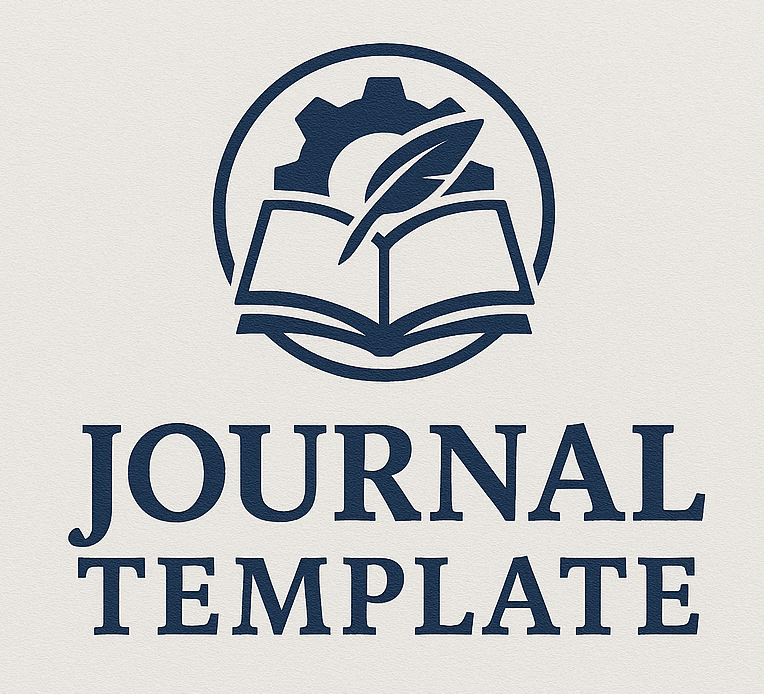Development of MOOCs in Civil Engineering Education through Gamification Implementation
DOI:
https://doi.org/10.21831/jpts.v5i2.59716Keywords:
Massive Open Online Course, Gamifikasi, Mekanika TeknikAbstract
Background: Massive Open Online Courses (MOOCs) represent an accessible online learning platform open to everyone without specific conditions. The prominence of MOOCs has surged, particularly following the Covid-19 pandemic. Despite this global trend, the development of MOOCs in Indonesia faces challenges such as community unpreparedness and inadequate infrastructure. Traditional education perceptions persist, with many Indonesians believing in the necessity of formal education. Gamification, involving the incorporation of enjoyable and engaging game elements into non-game activities, presents an innovative approach. Given the relatively low demand for MOOCs in Indonesia, gamification is employed to enhance user motivation and retention, with the expectation of increasing student interest in utilizing MOOCs.
Methods: The research methodology employed is Research and Development (R&D), utilizing the Four D-Models model and gamification analysis through the Octa lysis Gamification Framework. This framework serves as the foundation for the selection of gamification elements.
Results: Media validation results demonstrate an 86% feasibility rating for gamification-based MOOC products in Engineering Mechanics 1 courses, categorizing it as "Very Decent." Overall, the MOOC platform achieves a 92% feasibility rating, also falling into the "Very Decent" category.
Conclusion: In conclusion, the research affirms that the development of gamification-based MOOCs in Engineering Mechanics 1 courses is viable for integration into the learning process. This is supported by the positive results from media validation and trials, both categorized as "Very Decent."
References
Alghifari, A. N. (2020). Pengembangan Massive Open Online Course (Mooc) Modul Certificate Dan Ceremony. Universitas Islam Indonesia.
Alsaad, F. M., & Durugbo, C. M. (2021). Gamification-as-Innovation: A Review. International Journal of Innovation and Technology Management, 18(5). https://doi.org/10.1142/S0219877021300020
Annur, C. M. (2021). Mayoritas Gamers Indonesia Habiskan Waktu 4 Sampai 7 Jam Per Minggu. Databoks. https://databoks.katadata.co.id/datapublish/2021/11/22/mayoritas-gamers-indonesia-habiskan-waktu-4-sampai-7-jam-per-minggu
Borras-Gene, O., Martiñez-nunez, M., & Fidalgo-Blanco, í. (2016). New Challenges for the motivation and learning in engineering education using gamification in MOOC. International Journal of Engineering Education, 32(1), 501–512.
Bralić, A., & Divjak, B. (2018). Integrating MOOCs in traditionally taught courses: achieving learning outcomes with blended learning. International Journal of Educational Technology in Higher Education, 15(1). https://doi.org/10.1186/s41239-017-0085-7
Chaeruman, U. A. (2019). Instrumen Evaluasi Media Pembelajaran. https://doi.org/10.13140/RG.2.2.14419.12329
Chou, Y.-K. (2019). Actionable Gamification Beyond Points, Badges, and Leaderboards. Packt Publishing.
Deng, R., & Benckendorff, P. (2021). What are the key themes associated with the positive learning experience in MOOCs? An empirical investigation of learners' ratings and reviews. International Journal of Educational Technology in Higher Education, 18(1). https://doi.org/10.1186/s41239-021-00244-3
Dihni, V. A. (2022). Jumlah Gamers Indonesia Terbanyak Ketiga di Dunia. Databoks.
Kim, S., Song, K., Lockee, B., & Burton, J. (2018). Advances in Game-Based Learning Gamification in Learning and Education Enjoy Learning Like Gaming. Springer International Publishing. https://doi.org/10.1007/978-3-319-47283-6
Liew, L. T. P., Jaya, N. bt, & Rahman, S. S. Z. W. A. (2018). The Effectiveness of Gamification in Finance Education. The Asian Conference on Education 2018, June, 969–976. www.iafor.org
Mazarakis, A. (2021). Gamification Reloaded. 20(3), 279–294. https://doi.org/10.1515/dg
McAlpine, L., & Weston, C. (1994). The Attributes Of Instructional Materials. In Performance Improvement Quarterly (Vol. 7, Issue 1, pp. 19–30). https://doi.org/10.1111/j.1937-8327.1994.tb00614.x
Prasad, K. (2021). Gamification and Its Applications. Journal of Business Strategy, Finance and Management, 02(2). https://www.researchgate.net/publication/355041252_Gamification_and_Its_Applications
Putra, Y. A., & Hariyanto, V. L. (2021). Pengembangan Modul Pembelajaran Mekanika Teknik Untuk Smk Kelas X Kompetensi Keahlian Desain Permodelan Dan Informasi Bangunan. Jurnal Pendidikan Teknik Sipil, 3(1), 54–68. https://doi.org/10.21831/jpts.v3i1.41887
Putri, G. S., Hartanto, B., & Husna, N. (2019). Generation Gap; Analisa Pengaruh Perbedaan Generasi Terhadap Pola Komunikasi Organisasi di Perusahaan Consumer Goods Di Kota Surabaya. JURNAL SOSIAL : Jurnal Penelitian Ilmu-Ilmu Sosial, 20(1), 36–43. https://doi.org/10.33319/sos.v20i1.36
Rafiqo, H., & Indrajit, R. E. (2022). Guru Milenial dan Tantangan Society 5.0 (M. Kika (ed.); 1st ed.). Andi.
Stracke, C. M., Downes, S., Conole, G., Burgos, D., & Nascimbeni, F. (2019). Are MOOCs Open Educational Resources? A literature review on history, definitions and typologies of OER and MOOCs. Open Praxis, 11(4), 331–341. https://doi.org/10.5944/openpraxis.11.4.1010
Suyetno, A. (2020). Pengembangan Massive Open Online Courses (MOOCs) pada Materi Pengelasan. Jurnal Teknik Mesin Dan Pembelajaran, 2(2), 141. https://doi.org/10.17977/um054v2i2p141-152
Tambunan, S. A. (2021). Analisa Kebutuhan Pengembangan Media Pembelajaran Pada Mata Pelajaran Konstruksi Dan Utilitas Gedung Di Kelas Desain Permodelan Dan Informasi Bangunan Smk Negeri 1 Percut Sei Tuan. Jurnal Pendidikan Teknik Sipil, 3(1), 23–27. https://doi.org/10.21831/jpts.v3i1.41883
Thiagarajan, S., Semmel, D., & Semmel, M. (1974). Instructional Development for Training Teachers of Exceptional Children: A Sourcebook. In Leadership Training Institute/Special Education, University of Minnesota (Ilustrated). Leadership Training Institute/Special Education, University of Minnesota. https://doi.org/10.1016/0022-4405(76)90066-2
Thomas, A., Bader, F., Thomaschewski, J., & Rauschenberger, M. (2021). Integrating Gamification: The Human-Centered Gamification Process. October, 430–435. https://doi.org/10.5220/0010712500003058
Turner, P. E., Johnston, E., Kebritchi, M., Evans, S., & Heflich, D. A. (2018). Influence of online computer games on the academic achievement of nontraditional undergraduate students. Cogent Education, 5(1). https://doi.org/10.1080/2331186X.2018.1437671
Wang, K., & Zhu, C. (2019). MOOC-based flipped learning in higher education: students' participation, experience and learning performance. International Journal of Educational Technology in Higher Education, 16(1). https://doi.org/10.1186/s41239-019-0163-0













